The Applied Superconductivity Conference has made a commitment to the significance and importance of Diversity and Inclusion. This year there are two virtual D&I events featuring a panel of speakers to address the relevant topics brought forward from the superconducting community during our last event. These include: Unconscious bias: building awareness; achieving purposeful integration of this awareness into your professional practice; Communication and conflict management; engagement of members of your organization. We feel it is especially relevant to include in our discussion the influence of health, well-being and geo-political environment on diversity and inclusion.
Let’s gather and address underlying issues that may be limiting technical growth and affecting recruitment, mentorship, career transitions and other aspects that are deleterious to our focused scientific field.
The event is open to all ASC 2020 participants. Please join the discussion!
Sincerely,
ASC 2020 Diversity and Inclusion Committee
Co-chairs:
Dr. Cathy Foley, Commonwealth Scientific and Industrial Research Organization, Australia
Dr. Sasha Ishmael, Lupine Materials and Technology Inc., USA
Organizers:
Ashleigh Francis, Applied Superconductivity Center-NHMFL, USA
Dr. Kathleen Amm, Brookhaven National Laboratory, USA
Paula Pair, Centennial Conferences, USA
Tabitha Sebastino, Cryomech Inc., USA
Dr. Luisa Chiesa, Tufts University, USA
Dates & Times — two sessions (U.S. East Coast time is provided, check schedule for corresponding local time):
1. Thursday, October 29, 8:00 a.m. – 9:15 a.m (EDT).
2. Monday, November 2, 6:00 p.m. – 7:00 p.m (EST).
Location: Whova platform
Panel speakers:
 |
Louise Carvalho, Legal Adviser / Diversity & Inclusion Program Leader at CERN Louise Carvalho joined CERN in October 2014 as a Legal Adviser to the Human Resources Department and became the Diversity Programme Leader in July 2018, carrying out both functions at 50%. Louise is born in the UK, raised in Canada; her heritage spans 3 continents; she has 2 passports, speaks 4 languages, and has lived in 6 countries. Following studies in Canada, France and Denmark, in 1997 she qualified as a Barrister and Solicitor in the Law Society of British Columbia, Canada. She spent her junior lawyer years at the Ministry of Attorney General in Canada (Constitutional and Administrative Law), then spent 1 year working in the private sector in London England, followed by 10 years as a Legal Adviser for the United Nations and European Union institutions in post-conflict Kosovo in the former Yugoslavia. Following her decade “in the field”, Louise was hired as a Legal Officer at the Organisation for the Prohibition of Chemical Weapons (OPCW) in the Hague before coming to CERN in 2014. |
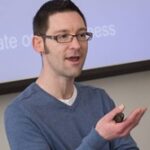 |
Jeffrey Goodman, Department Chair and Professor of Psychology at the University of Wisconsin Eau-Claire Jeff Goodman earned his PhD in Experimental Social Psychology from the Univ. of Maine in 2008. Since then, he has been a faculty member at UW-Eau Claire (where he is Professor and Chair of the Psychology Department). He served as UW-Eau Claire’s Equity, Diversity and Inclusivity fellow from 2015-2017 and has played leadership roles in UW-Eau Claire’s campus climate survey and EDI Action Plan. His research focuses on social, cognitive and emotional aspects of stigma, prejudice and discrimination from the perspective of majority as well as under-represented/stigmatized groups. Most recently, he has been researching the role that perceived identity threats have on attitudes toward immigration and religious pluralism and the influence of worldviews in reactions to social protests and calls for structural change. Jeff frequently provides evidence-based trainings, workshops, and consultations on implicit and other forms of bias to students, faculty/staff, healthcare providers, and law enforcement and criminal justice professionals in hopes of encouraging individual, organizational and community growth. |
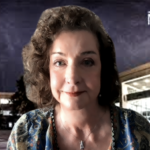 |
Laura Green– Chief Scientist at the National High Magnetic Field Laboratory (NHMFL) |
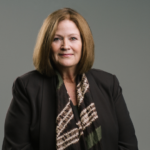 |
Susan Butler, Associate Director, Public Affairs at the University of Houston, Texas Center for Superconductivity |
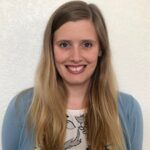 |
Ashleigh Francis- PhD Student, Applied Superconductivity Center at NHMFL |
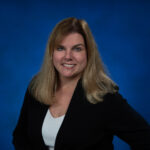 |
Kathleen Amm, Division Head, Superconducting magnet division at Brookhaven National Laboratory / Diversity & Inclusion co-chair for the IEEE Council on Superconductivity Kathleen Amm is currently the Division Head of the Superconducting Magnet Division at Brookhaven, where she was recruited to lead a world class team of 30+ cross- functional scientists, engineers, and technicians developing the future of superconducting magnet technology, with application to accelerators, science, fusion, and other industrial applications of superconductivity. This team is currently participating in several projects on the cutting edge of magnet development, which include the Accelerator Upgrade project for the Large Hadron Collider at CERN, development of magnets for the Electron Ion Collider – the next large accelerator project in the US which will be hosted at Brookhaven, The Magnet Development Project developing the next generation of high temperature superconducting accelerator magnets, and crucial collaboration in the high temperature superconducting space with the startup compact fusion industry.Prior to that, Dr. Amm was at GE’s Global Research Center where she held for over the past 20 years, increasing roles of responsibility in the MR and superconducting magnet space. She started as a bench scientist, where she led a global team to develop key permanent magnet and superconducting technologies for GE. She was the PI of a $2 million dollar NIST Advanced Technology program to develop permanent magnet technologies for GE, and coordinated the writing of a successful $2.8 million NIH proposal to develop cryogen-free HTS magnets. She then led the GE Global Research magnet team – a team of 16 engineers, scientists, and technicians to deliver innovative superconducting and electromagnetic technologies to GE Healthcare (GEHC), GE Energy, and GE Aircraft Engines. Dr. Amm played a critical role in delivering technologies to support the technology strategy and numerous product launches for GEHC, including the MR750, MR450W and the MR750W. Dr. Amm and her team successfully developed low cryogen magnet technology, reducing the thousands of liters of liquid helium required for superconducting MRI magnets to operate, a non-renewable resource whose availability is increasingly challenged, to tens of liters that are enclosed in a completely closed loop system so no helium is lost. She is recognized as a leader in the superconducting magnet community and has served on numerous superconducting and cryogenic conference boards, including being the president of the Applied Superconductivity Conference, the largest conference in Superconductivity. She is an active Senior member of IEEE, member of the Advisory Committee for the IEEE Council on Superconductivity, where she has served in numerous roles including developing a Student Fellowship for top students in Superconductivity as well as the Council’s representative for the IEEE Women in Engineering Board. She has mentored and coached many students and early career scientists and engineers to successfully grow their careers in superconductivity. She has over 22 patents, several book chapters, and 50 publications. |